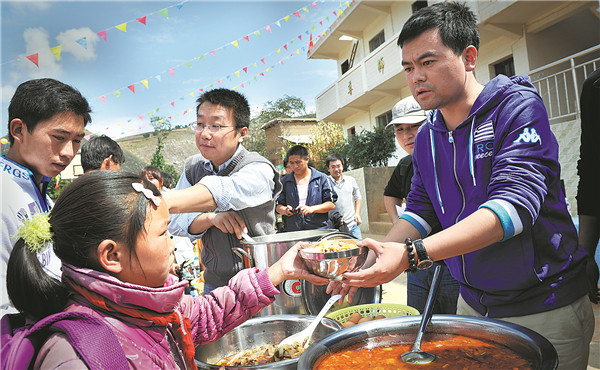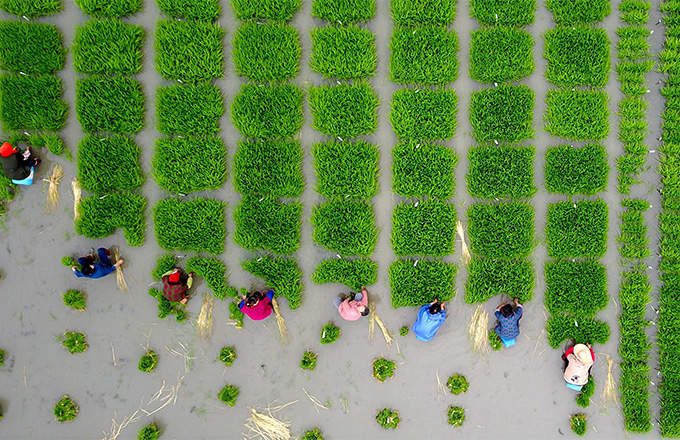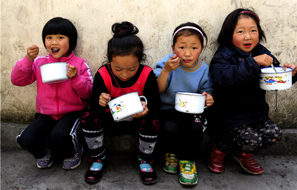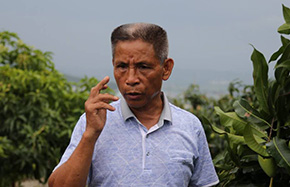Providing food for thought in China's rural schools
 |
|
Deng Fei serves free meals to children in Yi-Hui-Miao autonomous county, Guizhou. [Photo by Zhao Junxia for China Daily] |
Speaking on the foundation's sixth anniversary, Deng said it still has a big role to play: "Our program is still going strong. We provide free lunches to children in poverty-stricken areas not covered by the national plan, and also give money to help schools that need infrastructure and resources."
Local authorities have backed the initiative. In May 2011, Deng's team established a new delivery model in Xinhuang: for every 1 yuan the local government pays for meals and building canteens, Deng's team contributes a further 2 yuan.
The initiative now covers all the education centers, kindergartens and schools in Xinhuang.
Yao Haiyan, the county's deputy mayor, recalled the day the first new kitchen began operations and 59 students ate their first free lunch: "The meal was rice, fried pickles and beef, stir-fried potatoes and tomato soup. Many children wolfed down their meals."
Yao said the county government spent a lot of money setting up canteens and drawing up strict food safety measures. A special account operated by the foundation means the bill for each meal is made public on social media.
"Corruption is not a problem-every penny is marked down for transparency," Yao said. "The students are no longer hungry, and they love learning. Our students are often ranked top in the city."
Deng is pleased to see more children enjoying free lunches, but said poor children are still trapped by the problems caused by poverty.
Many rural families are poor. Parents head to big cities to make money, leaving the children with their grandparents. There is no timely treatment when they get sick. "Even for better-off families, a serious illness is quite likely to throw them back into poverty. That's why we introduced the Commercial Critical Illness Insurance Program for rural children," he said.
The CCII program and Deng's insurance program go hand in hand, with the government, families and the charity all making a contribution.
Xiong Min, deputy mayor of Hefeng County in Hubei province, said since 2012 the program has helped more than 400 families in one county.
























